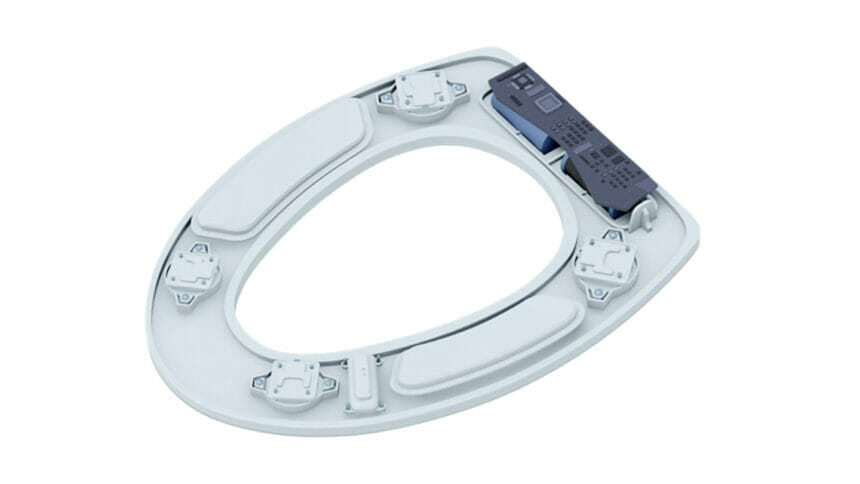
The Food and Drug Administration has given clearance to a health-monitoring toilet seat, according to Casana, its maker.
The Heart Seat received approval for monitoring heart rate and oxygen saturation in adults who weigh between 90 and 350 pounds. Casana claims sensors in the battery-powered toilet seat send health data to providers — and let caregivers know when readings outside a set threshold are detected. The battery-powered device can work for several years without being recharged.
The smart toilet seat contains a rotating cartridge system that can run dozens of tests. The device is cleaned every time the toilet is flushed.
The company plans to file with the FDA for additional monitoring capabilities, such as blood pressure tracking. The toilet seat is expected to be available later this year, according to the firm.
“This clearance is a critical step on our journey to commercialize the Heart Seat,” Casana CEO Austin McChord said. “This brings us one step closer to helping patients and healthcare providers across the U.S. manage their health.”
Casana was founded in 2018 in partnership with the University of Rochester Medical Center. Founder and Chief Scientific Officer Nicholas Conn first developed the Heart Seat while completing his doctorate at the Rochester Institute of Technology.
“As medicine moves from the physician’s office into the home, accurate home monitoring of medical parameters is increasingly important,” George Bakris, a Casana adviser, said in a release.
Remote patient monitoring is a growing part of healthcare. In fact, the market for such products is expected to top $41 billion by 2032, according to a just-released report by Global Market Insights.
Several factors are contributing to the sector’s rapid growth, according to analysts. They include a surge in aging populations, increases in chronic conditions, COVID-19 and cost-driven reimbursement changes.



